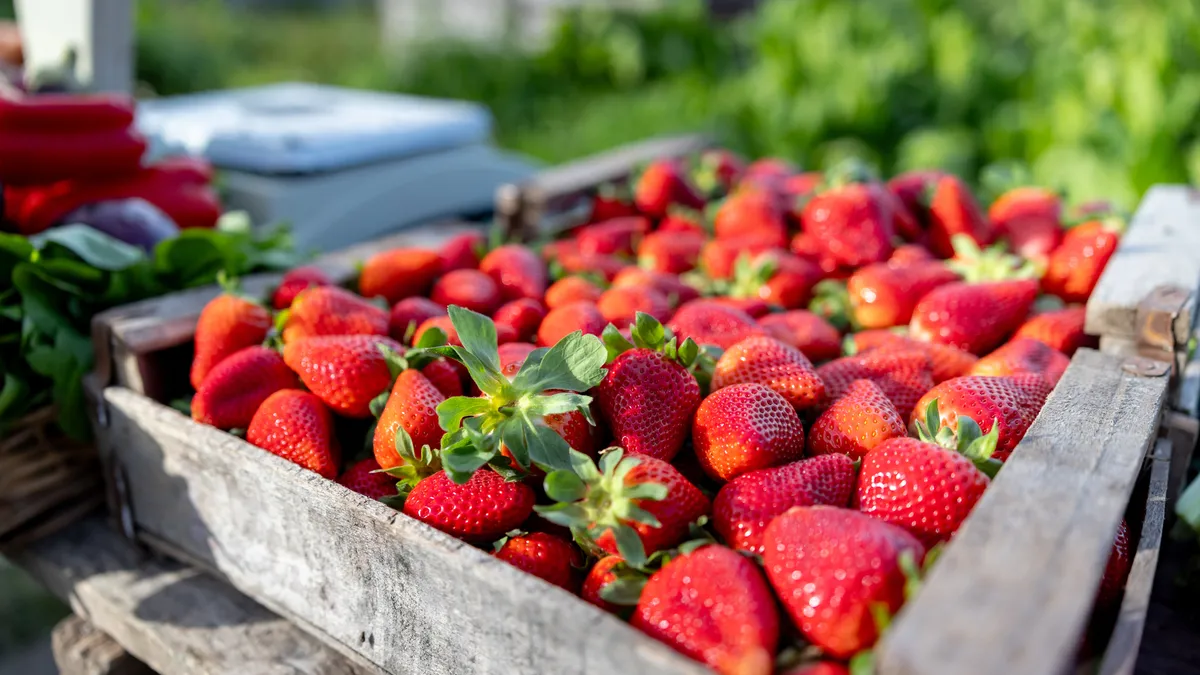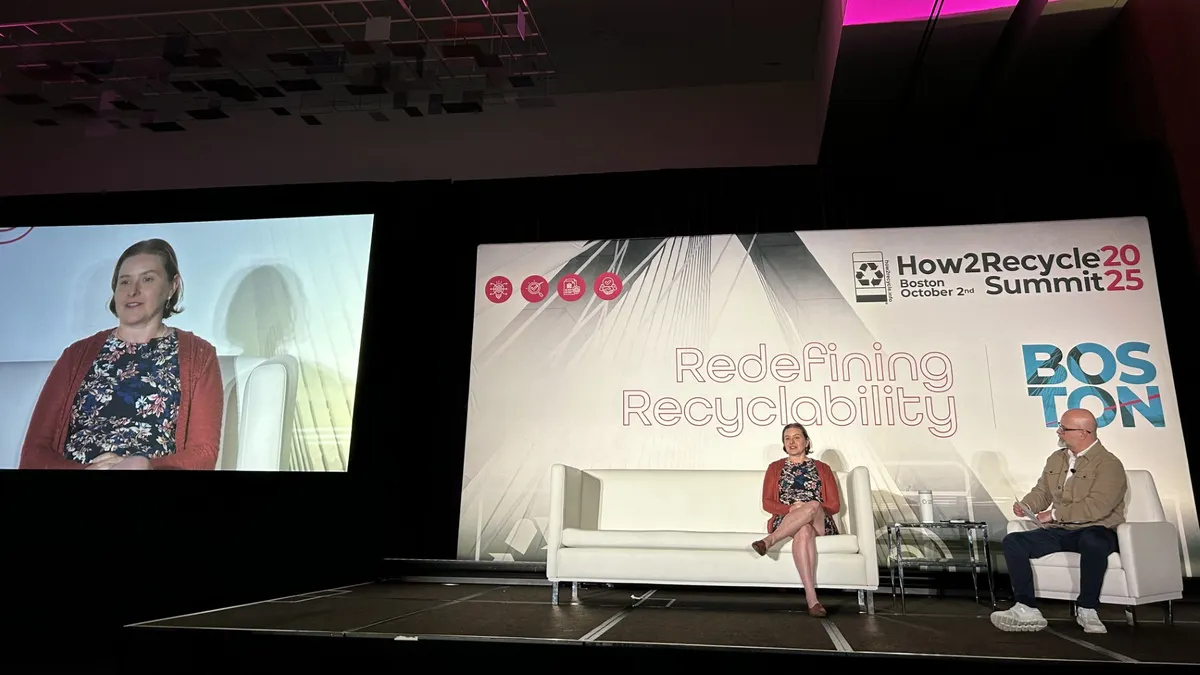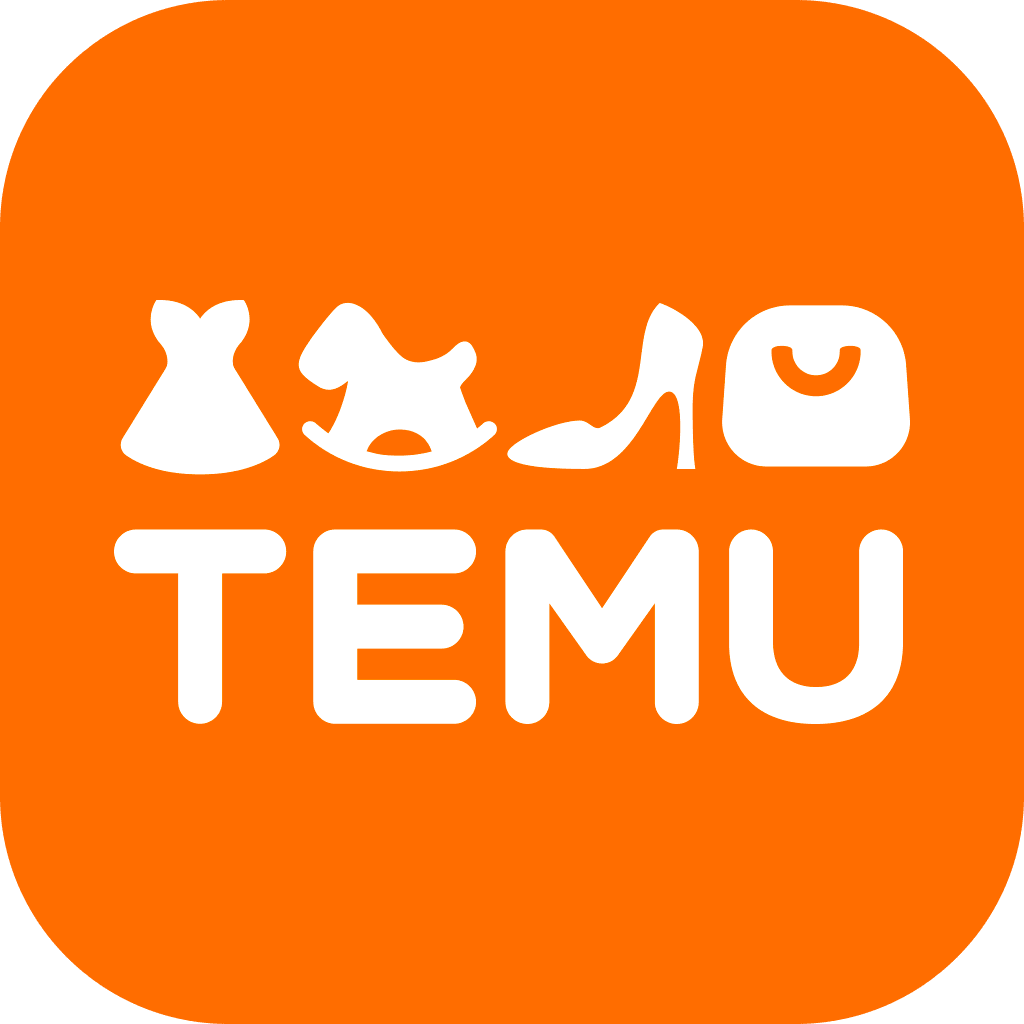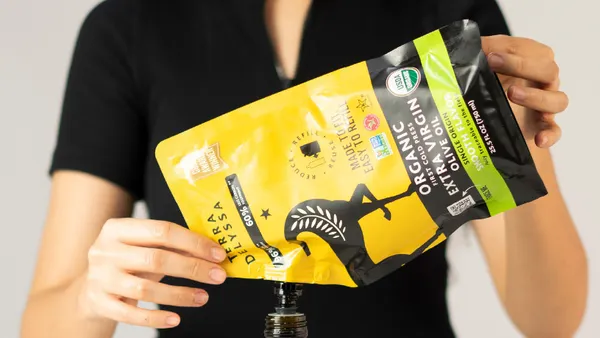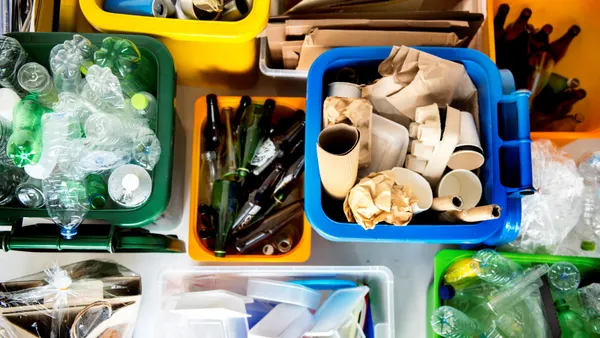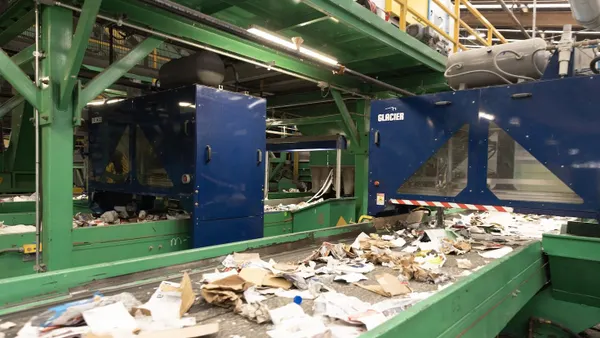Dive Brief:
- The Sustainable Packaging Innovation Lab (SPIL), a federally backed initiative run through Clemson University and the International Fresh Produce Association’s Foundation for Fresh Produce, has awarded a first tranche of $2.5 million for a range of projects to research and develop sustainable packaging innovations.
- The intent is to help U.S. specialty crop exports — which Clemson says is a $143 billion industry — comply and be competitive in international markets that require sustainable packaging changes such as using less plastic and incorporating more recycled content. These include the forthcoming EU Packaging and Packaging Waste Regulation, as well as regulations in Canada, Japan, South Korea and elsewhere, according to Clemson’s James Sternberg, assistant professor of sustainable packaging and a leader of the initiative.
- Examples of project areas include protective coatings that help reduce overall packaging, as well as compostable packaging components such as stickers. SPIL is now in the process of working on a second funding cycle, intending to send out a new request for proposals in the fall to allocate remaining funds, Sternberg said.
Dive Insight:
The U.S. Department of Agriculture’s Foreign Agricultural Service funded SPIL with $5 million in 2024, Sternberg explained. While its mission of supporting “specialty crops” may sound niche, that category comprises most fruits and vegetables besides the biggest crops like wheat, soybean and corn, he noted.
The lab has three tracks: applied R&D (laboratory stage), a technology accelerator (innovations ready to scale), and scale-up and pilot (scaling manufacturing projects to commercialize.) “These early-stage projects, many still pre-commercial, are using SPIL funding to accelerate market readiness, obtain necessary certifications (such as BPI, TUV, ASTM D6400), and launch pilot-scale production,” Clemson noted in its release.
As outlined in USDA’s release, some examples among the range of commercial projects include:
- Akorn Technology: Advancing a validated, edible thin-film coating for cucumbers and bell peppers through commercial scale pilots with industry partners.
- Biologiq: Piloting and validation of BioLogiQ's certified plant-based materials for specialty crop packaging and scale-up, including a compostable design and another utilizing postconsumer recycled plastic; relevant for many fruits, vegetables, and greens, as well as for pallet wrap and pallets for shipping.
- Kwik Lok: Testing and field pilots of compostable bag closures and labels that also contain traceability data.
- NatureSweet: Testing and transitioning fresh tomato packaging to recycled PET, including validating packaging performance through lab-scale testing, shelf-life studies and real-world shipping trials.
- Savrpak: Testing and optimizing a moisture-absorbing pad which eliminates the need for cold storage in transportation, with testing focused on avocadoes.
- Sway: Scaling and commercializing compostable seaweed-based packaging, with applications for table grapes, cherries, citrus, apples, leafy greens.
There were also numerous examples of academic centers receiving funding, some of which included:
- Clemson University: Development and testing of cross-linked starch-based barrier coating material for paper packaging of almonds; and a project on compostable price-look-up stickers and labels from plant-derived plastics for products such as apples, pears, peppers, cucumbers and melons.
- Michigan State University: Pilot-scale testing of recyclable and compostable all-purpose corrugated boxes relevant to bulk and retail packaging of a variety of fruits, vegetables, herbs, and nuts.
- University of Maine in partnership with Sappi and Cal Poly Strawberry Center: Development of fully recyclable cellulose-based packaging for exports of strawberries and blueberries, with eventual applicability to bagged salads and other ready-to-eat produce.
- University of Missouri: Development of novel translational sprayable coating materials for antimicrobial food packaging, focused on cherry tomatoes exports.
- Virginia Tech: Scaling up chitin nanofiber packaging technology with passive cooling, leading to a longer shelf life for strawberries.
The innovation lab concept is not unique to SPIL, Sternberg noted. The hope is that if SPIL can demonstrate significant output from this initial round of funding, it could potentially pursue further funding in the future.


